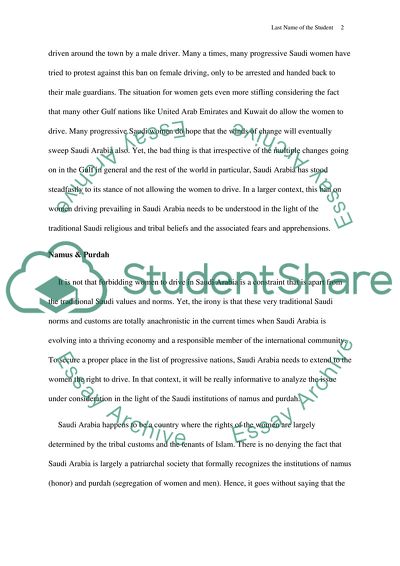Cite this document
(“Should women be able to drive in Saudi Arabia Research Paper”, n.d.)
Retrieved from https://studentshare.org/miscellaneous/1608273-should-women-be-able-to-drive-in-saudi-arabia
Retrieved from https://studentshare.org/miscellaneous/1608273-should-women-be-able-to-drive-in-saudi-arabia
(Should Women Be Able to Drive in Saudi Arabia Research Paper)
https://studentshare.org/miscellaneous/1608273-should-women-be-able-to-drive-in-saudi-arabia.
https://studentshare.org/miscellaneous/1608273-should-women-be-able-to-drive-in-saudi-arabia.
“Should Women Be Able to Drive in Saudi Arabia Research Paper”, n.d. https://studentshare.org/miscellaneous/1608273-should-women-be-able-to-drive-in-saudi-arabia.


